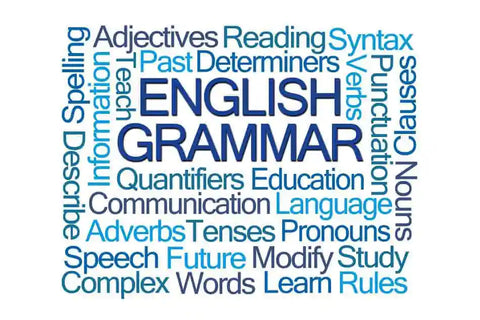機構是否為學術和科學期刊支付公平的價格?
嗯,有些人可能會說,顯而易見的答案是否定的,而且這個問題已經持續很久了。畢竟,學術期刊的機構訂閱率一般來說都很高,但最近的一項研究表明,透過比較出版商和大學的電子期刊價格和價值,可以發現更令人不安的趨勢。 《衛報》的一篇簡短文章概述了部分研究結果(http://bit.ly/1jvrLaU),並提供了 PNAS 原始文章的鏈接,以便讀者了解該研究的完整細節。
該研究調查了電子學術和科學期刊的訂閱套餐成本,並透過(有點值得懷疑的)每次引用成本公式來衡量性價比,同時也考慮了與定價相關的其他因素,例如大學的研究活動和年度招生人數,以及授予的博士學位數量。大型期刊出版公司通常不會公開訂閱套餐的價格,而合約中的「明確的『保密』」條款禁止大學透露他們支付的費用,因此必須使用《資訊自由法》請求來獲取出版商和美國一些大學之間的合約副本。這些合約表明,大型營利性期刊出版公司提供的價值低於非營利性期刊出版商(有時價值低得多),尤其是在大型研究型大學購買的捆綁訂閱方面。這些捆綁訂閱的收費因機構而異,訂閱費的年度增長幅度也不同(可能非常高)。有時這種差異是有道理的:例如,大型期刊出版公司對小型低研究機構的降價幅度比非營利期刊出版商大得多。然而,在其他情況下,這種差異似乎是不合邏輯和不公平的:例如,在某些情況下,入學人數多、授予博士學位多的大學支付的費用明顯低於入學人數少、授予博士學位少的大學,儘管購買的套餐是相同的。顯然,某些大學已經成功地爭取到了更好的價格和更低的年度漲幅,而其他大學卻不知道他們能夠做到這一點,正如《美國國家科學院院刊》文章的作者所指出的,這很可能解釋了為什麼一些出版商希望對合約條款保密。
大型期刊出版公司報告稱其每年都有可觀的利潤,這並不令人意外,而且學術界也承認他們的期刊是發表文章對職業發展有利的“正確選擇”,這確保了他們在現有體制下將繼續這樣做,但這會給學術界和科學界帶來什麼代價呢?目前,許多大學圖書館為了削減成本,選擇不完全存取電子期刊,從而限制了學生和教師可用的資源。同時,學費不斷上漲,班級規模不斷擴大,學生畢業時背負著巨額債務。普遍開放取用學術期刊、抵制營利性公司出版的期刊而選擇非營利出版商提供的期刊,甚至向商業出版商收取大學教師所做的審查和編輯工作的費用,都被建議作為可能的解決方案,但這些似乎不太可能很快實現。就目前而言,也許一些簡單且可實現的方法,例如以始終公平的方式公開披露合理的價格,將有助於稍微平衡財務規模,並更好地促進許多學者和科學家仍然認為的學術期刊的核心目的——分享研究成果。
為什麼選擇我們的編輯和校對服務?
在 Proof-Reading-Service.com,我們透過龐大且極其敬業的學術和科學專業團隊提供最高品質的期刊文章編輯、論文校對和線上校對服務。我們所有的校對人員都是英語母語人士,擁有研究生學位,他們的專業領域涵蓋了廣泛的學科,因此我們能夠幫助我們的國際客戶進行研究編輯,以改進和完善各種學術手稿,從而成功出版。我們的稿件編輯和校對團隊中許多經過精心培訓的成員主要負責擬在學術期刊上發表的文章,運用嚴格的期刊編輯標準,確保每篇論文中使用的參考文獻和格式符合期刊對作者的指示,並糾正任何語法、拼寫、標點或簡單的打字錯誤。透過這種方式,我們使客戶能夠以清晰準確的方式報告他們的研究,以打動收購校對員並實現出版。
我們為各種科學期刊論文的作者提供的科學校對服務尤其受歡迎,但我們也提供手稿校對服務,並擁有校對和編輯所有學術學科以及其他學科手稿的經驗和專業知識。我們的團隊成員專門從事醫學校對服務,我們的一些專家專門致力於論文校對和手稿校對,透過最嚴格的博士論文編輯和期刊文章校對實踐,為學者提供提高格式和語言使用能力的機會。無論您是在準備會議論文以供展示,完善進度報告以供與同事分享,還是面臨編輯和完善任何類型學術文獻以供出版的艱鉅任務,我們專業團隊的合格成員都可以提供寶貴的幫助,讓您對您的書面作品更有信心。
如果您正在為學術或科學期刊準備一篇文章,或者計劃在不久的將來實現這一目標,那麼您可能會對一本新書《期刊出版指南》感興趣,該書可在我們的「期刊發表研究成果的技巧和建議」網站上找到。








